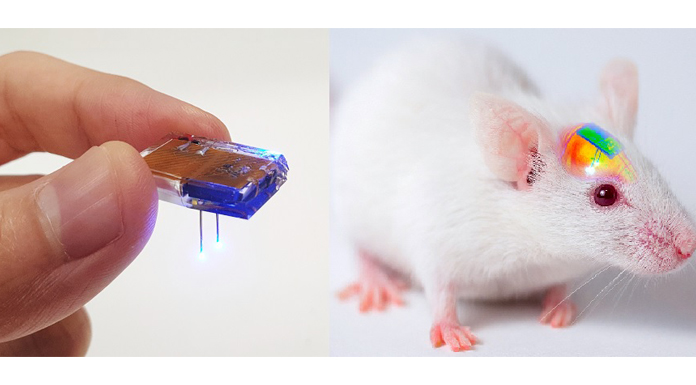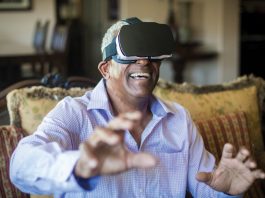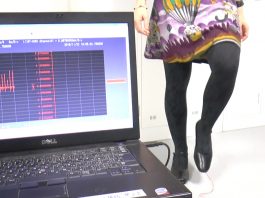An international team of researchers has engineered a tiny brain implant that can be wirelessly recharged from outside the body to control brain circuits for long periods of time.
The device is made of ultra-soft and bio-compliant polymers to help provide long-term compatibility with tissue. Geared with micrometre-sized LEDs mounted on ultrathin probes, the brain implant can wirelessly manipulate target neurons in the deep brain using light.
The new wireless charging technology addresses the limitations of current brain implants. Wireless implantable device technologies have recently become popular as alternatives to conventional tethered implants because they help minimise stress and inflammation in freely-moving animals during brain studies, which enhances the lifetime of the devices. Implantable devices require either intermittent surgeries to replace discharged batteries, or special and bulky wireless power setups, which limit experimental options as well as the scalability of animal experiments.
Study leader, Professor Jae-Woong Jeong from Korea Advanced Institute of Science & Technology, said: “This powerful device eliminates the need for additional painful surgeries to replace an exhausted battery in the implant, allowing seamless chronic neuromodulation. We believe that the same basic technology can be applied to various types of implants, including deep brain stimulators, and cardiac and gastric pacemakers, to reduce the burden on patients for long-term use within the body.”
Combing energy harvesting and Bluetooth technology
To enable wireless battery charging and controls, researchers developed a small circuit that integrates a wireless energy harvester with a coil antenna and a Bluetooth low-energy chip. An alternating magnetic field can harmlessly penetrate through tissue and generate electricity inside the device to charge the battery. Then the battery-powered Bluetooth implant delivers programmable patterns of light to brain cells using an “easy-to-use” smartphone app for real-time brain control.
Neuroscientists successfully tested these implants in rats and demonstrated their ability to suppress cocaine-induced behaviour after the rats were injected with cocaine. This was achieved by precise light stimulation of relevant target neurons in their brains using the smartphone-controlled LEDs. Furthermore, the battery in the implants could be repeatedly recharged while the rats were behaving freely, thus minimising any physical interruption to the experiments.
Jeong-Hoon Kim, a professor of physiology at Yonsei University’s College of Medicine, said: “The fact that we can control a specific behaviour of animals, by delivering light stimulation into the brain just with a simple manipulation of smartphone app, watching freely moving animals nearby, is very interesting and stimulates a lot of imagination. This technology will facilitate various avenues of brain research.”









